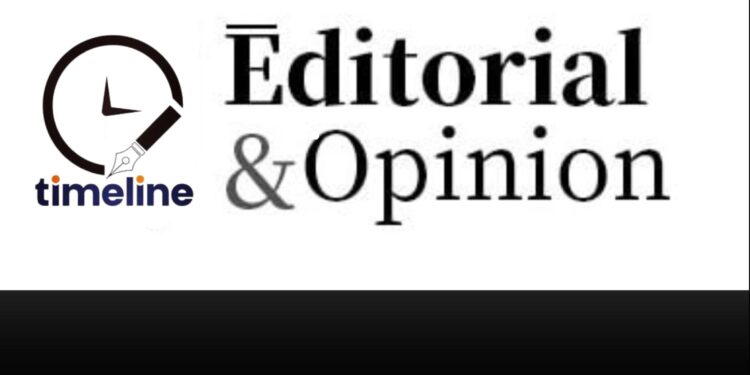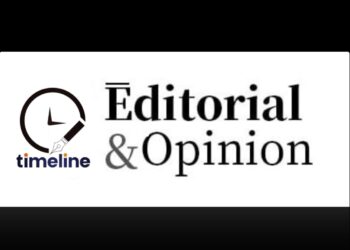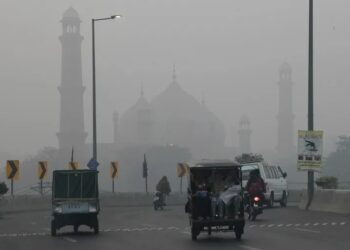Written by: Abdul Basit Alvi
International relations, the study of how countries, political systems, and global organizations interact, is shaped by a range of factors including political ideologies, economic interests, historical contexts, cultural exchanges, and diplomatic policies. While individual leaders or key figures can significantly influence the direction of a country’s foreign policy or international relations, the idea that these relationships are not fundamentally altered by individuals is compelling when considering the broader, systemic forces at play in global politics.
Although individuals may influence the tone, style, or priorities of diplomatic relations, their impact tends to be temporary when compared to the long-term structural forces that drive international interactions. These forces include geographical proximity, trade dependencies, historical connections, military alliances, and economic interdependence, all of which are deeply embedded in the fabric of international politics. Countries often maintain stable relations based on shared economic interests, such as trade agreements, resource access, or joint industrial and technological developments. These economic ties typically remain intact even with a change in leadership. For example, despite shifts in political administrations in countries like the United States, trade relationships with major partners such as China, Canada, and the European Union generally remain strong due to the underlying economic factors driving these connections.
The security dynamics of nations—such as defense alliances, border issues, and regional stability—are often influenced by historical trends and strategic calculations rather than the decisions of individual leaders. A prime example is the NATO alliance, established in 1949, which continues to function effectively despite changes in political leadership across member states. Even when a new president or prime minister adopts a more isolationist or protectionist approach, security concerns, especially those involving adversarial powers or global terrorism, often prompt countries to return to cooperation and engagement.
International institutions and agreements also play a vital role in stabilizing and regulating relationships between countries. Organizations like the United Nations (UN), the World Trade Organization (WTO), and regional bodies such as the European Union, the African Union, and ASEAN ensure that diplomatic interactions are governed by structured frameworks. These organizations set norms, rules, and procedures that guide inter-state relations, creating an environment that reduces the impact of individual decisions on long-term relations. For instance, the Paris Agreement on climate change, signed by nearly 200 countries, was not the product of one leader’s initiative, but rather a collective effort driven by shared environmental concerns. While a change in leadership may prompt some countries to reconsider their commitment to the agreement, pressure from international stakeholders, civil society, and the need for global cooperation help ensure the persistence of such relationships.
Similarly, trade agreements like the North American Free Trade Agreement (NAFTA), which evolved into the United States-Mexico-Canada Agreement (USMCA), are the result of negotiations among institutions and governments rather than the will of any single leader. While the leaders of the three countries played pivotal roles in the negotiations, the foundational importance of trade relations helped maintain stability, even through leadership transitions.
A country’s foreign relations are also deeply shaped by its historical legacy. Factors such as colonialism, territorial disputes, past wars, and treaties often have long-lasting effects on international relations, making them resistant to change by individual leaders. National interests are frequently rooted in historical events, and even with changes in political leadership, nations often continue to pursue long-term strategic objectives grounded in their past. For instance, the relationship between the United Kingdom and France, which has been marked by centuries of rivalry and conflict, has transformed into a partnership within the European Union (EU) and continues to remain stable post-Brexit. This stability is maintained through shared economic interests, security concerns, and cultural exchanges. Such historical legacies cannot be reversed by the policies of any one leader, and the international relations between these two nations have endured through numerous leadership transitions. Similarly, former Soviet republics such as Ukraine and Georgia have established long-standing geopolitical alignments shaped by their proximity to Russia and their ambitions to integrate into the European sphere. While individual leaders in these countries may pursue different policies toward Russia, the broader regional geopolitical pressures and security dynamics play a far more significant role in shaping their foreign relations. Though leaders may try to alter their countries’ foreign policies based on their political ideologies or personal views, they are often limited by domestic politics and public opinion. In many democratic systems, foreign policy decisions are influenced by public sentiment, opposition parties, and pressure groups. Nevertheless, the overall direction of foreign relations tends to remain relatively stable, as domestic politics typically cannot overhaul the structural factors driving international relations. For instance, in the United States, despite the ideological differences between Democratic and Republican administrations, the country’s foreign relations with allies such as Japan, South Korea, and Germany have largely remained consistent. Similarly, shifts in trade, defense, and diplomacy are often the result of ongoing negotiations or broader international trends rather than the whims of individual leaders. Public opinion—shaped by the complexities of trade, security, and global commitments—usually leads leaders toward pragmatic solutions rather than radical changes in policy.
Diplomacy and international relations are not solely driven by the executive office; they also involve a broad network of diplomats, foreign service officers, and bureaucrats who carry out and maintain the daily work of foreign policy. These professional diplomats ensure continuity in foreign relations, and their expertise helps preserve long-standing relationships despite changes in leadership. A change in leadership may lead to shifts in tone or focus—such as prioritizing human rights, economic reforms, or security alliances—but these changes are typically moderate and take place within an institutional framework that maintains vital bilateral and multilateral relationships. In this way, the stability of international relations is ensured through institutional continuity, even in times of significant political shifts.
Cultural exchanges, public diplomacy, and social ties between populations of different countries also serve as stabilizing forces in international relations. People-to-people exchanges, education, tourism, and shared values often create strong connections that political leaders cannot easily alter. For example, the deep cultural and educational exchanges between the United States and European countries like France or Germany reflect societal and historical bonds that transcend political administrations. These relationships are sustained by educational institutions, non-governmental organizations, businesses, and media outlets, ensuring that even if a political leader seeks to change diplomatic priorities, these bonds remain resilient.
The relationship between Pakistan and the United States stands as one of the most dynamic and complex partnerships in international politics. Over the years, this relationship has evolved through various transformations, influenced by shifting geopolitical interests, regional conflicts, and changing priorities in both nations. Despite the fluctuations, the bond between Pakistan and the United States remains vital for both countries, with significant implications for regional stability, global security, and economic interests. The roots of Pak-US relations trace back to the early years of Pakistan’s independence. In the wake of World War II and at the start of the Cold War, the United States aimed to form alliances with countries that could counter Soviet influence in Asia. Pakistan, which had recently gained independence from British colonial rule in 1947, occupied a strategically important position in a volatile region and was seen by the United States as a key ally in the fight against communism. In 1954, Pakistan joined the Central Treaty Organization (CENTO), a US-led military alliance designed to contain Soviet expansion in the Middle East and South Asia. Similarly, in 1955, Pakistan became a member of the Southeast Asia Treaty Organization (SEATO). These alliances marked a period of strong cooperation between the two nations, with the United States providing military and economic assistance to Pakistan. One of the most defining moments in Pak-US relations occurred in the late 1970s and 1980s, during the Soviet invasion of Afghanistan. Concerned about Soviet expansion into Central Asia, the United States sought Pakistan’s support as a frontline state in the fight against the Soviet Union. In 1979, when the Soviet Union invaded Afghanistan, Pakistan became a key ally in the US-led effort to back Afghan insurgents (the mujahideen) fighting Soviet forces. The US provided substantial military and financial assistance to Pakistan, which in turn used this support to supply aid to the Afghan fighters. The CIA worked closely with Pakistan’s Inter-Services Intelligence (ISI) agency to coordinate the delivery of weapons, including Stinger missiles, to the mujahideen. During this time, Pakistan’s military and political leadership became deeply involved in the Afghan conflict. The US-Pakistan alliance was seen as crucial in the Cold War, with the US recognizing Pakistan’s pivotal role in the defeat of the Soviet Union.
The events of September 11, 2001, dramatically reshaped Pak-US relations and brought the two countries closer. In the wake of the 9/11 attacks, orchestrated by the extremist group al-Qaeda based in Afghanistan, the United States, under President George W. Bush, sought Pakistan’s support in its global war on terror. This marked the beginning of a new phase of cooperation against terrorism. After the 9/11 attacks, Pakistan’s President Pervez Musharraf made the critical decision to align with the US in efforts to dismantle al-Qaeda and topple the Taliban regime in Afghanistan. In exchange for its support, Pakistan received substantial US military and economic aid, including billions in security assistance and access to advanced military technology. Pakistan also played a vital role in the logistical support of US forces in Afghanistan, allowing US troops to transit through its territory and providing crucial intelligence and assistance in operations targeting al-Qaeda and Taliban leaders.
The United States has remained a major source of financial assistance to Pakistan. Beyond military aid, the US has supported economic development, especially in education, healthcare, and infrastructure. It has also been a key partner in efforts to combat extremism in Pakistan, funding programs aimed at promoting stability and good governance. Throughout these years, the relationship between the two countries has been notable for its consistency, despite changes in leadership.
However, Pakistan has borne a significant cost in terms of terrorism due to its cooperation in the war against terror. The leadership of both the US and Pakistan has generally shown maturity and seriousness in managing the bilateral relationship, except for Imran Khan, who consistently prioritized his personal interests. Khan’s criticism of the United States has been a defining aspect of his political rhetoric. As a politician, Khan has positioned himself as a so-called staunch advocate for Pakistan’s sovereignty, often voicing his dissatisfaction with what he perceives as US interference in Pakistan’s internal affairs. His rhetoric has frequently conveyed strong anti-American sentiments, resonating with nationalist factions in Pakistan, especially those who believed the country had been dominated by foreign powers, particularly the US. Prior to becoming Prime Minister in 2018, Khan consistently criticized the United States. He accused successive Pakistani governments of being overly reliant on American aid, arguing that this dependence undermined Pakistan’s independence and sovereignty. He also criticized the US’s “War on Terror,” particularly the 2001 invasion of Afghanistan and the subsequent military operations in the region. Khan was vocal about the significant human cost of these interventions, highlighting the devastating impact on Pakistan, which suffered greatly from the violence and instability spilling over from Afghanistan. Throughout his political career, Khan framed his criticism of the US within the context of a broader push for geopolitical independence. He positioned himself as an advocate for a foreign policy that would enable Pakistan to make decisions based on its own interests, free from external influence. In his early years as an opposition leader, Khan’s rhetoric was strongly critical of the US, especially regarding its military presence in Afghanistan and its role in shaping Pakistan’s policies.
Khan’s most significant confrontation with the US occurred toward the end of his tenure as Prime Minister. In early 2022, as his government faced mounting political opposition and challenges, Khan began accusing the United States of being involved in a conspiracy to remove him from power. In the months leading up to his ousting in April 2022, Khan repeatedly claimed that the US, in coordination with certain factions within Pakistan’s political and military leadership, orchestrated a plot to destabilize his government. His central accusation was that the US had engineered a no-confidence motion against him in Pakistan’s National Assembly, mainly due to his independent foreign policy stance, which clashed with Washington’s interests. Khan argued that the US disapproved of his refusal not to align with the West, particularly regarding his growing ties with China and Russia. He also criticized the US for its negative response to his outspoken opposition to the US-led war in Afghanistan and its broader foreign policy in the region.
Khan further alleged that a letter from the US embassy in Islamabad conveyed the US’s dissatisfaction with his government and suggested that his removal would be necessary to improve US-Pakistan relations. This “foreign conspiracy” narrative became a central part of his political messaging as he framed himself as a victim of a covert campaign aimed at undermining his government’s sovereignty and legitimacy. The so-called conspiracy theory gained significant traction in Pakistani media, and Khan’s supporters viewed his removal as the result of foreign manipulation. The United States denied the allegations, with both US officials and diplomats in Pakistan dismissing any involvement in Pakistan’s domestic affairs, asserting that Washington had no interest in meddling in Pakistan’s internal politics.
For Khan, these allegations served to rally his base, presenting himself as a so-called nationalist leader fighting for Pakistan’s independence from foreign control. This narrative fit with his broader campaign centered on so-called “sovereignty” and rejecting foreign-imposed decisions. However, after his removal from office in April 2022, Imran Khan’s political trajectory took a dramatic turn. Despite spending much of his tenure as Prime Minister criticizing the US and accusing it of interfering in Pakistan’s affairs, his approach to Washington changed sharply after his ouster. Khan’s rhetoric regarding the US became more measured, acknowledging the importance of maintaining a pragmatic relationship with Washington. While he continued to assert that the US was part of the plot to remove him, he also recognized that engaging with the US was crucial for Pakistan’s political survival and economic future. His post-ouster statements emphasized the need for Pakistan to pursue a balanced foreign policy that would allow for improved relations with the United States. He emphasized his desire for Pakistan to maintain strong relationships with all major powers, including the United States, while firmly asserting the country’s sovereignty and independence. Khan repeatedly stated that he was not inherently anti-American, but rather opposed to any excessive foreign interference in Pakistan’s internal affairs. In an effort to restore US support for Pakistan, Khan’s PTI leadership pursued diplomatic outreach, even as Khan continued to criticize Washington’s role in his removal from office. Khan highlighted Pakistan’s strategic importance to the United States, given its geopolitical location in South Asia and its role in regional security, particularly concerning Afghanistan. While his efforts to engage with the US were primarily informal and rhetorical at this stage, there was a clear shift in his tone. He acknowledged that Pakistan would need US economic support, especially in securing financial assistance from international institutions like the International Monetary Fund (IMF) and the World Bank, where US influence is significant. Khan’s outreach occurred when Pakistan was grappling with economic challenges, such as inflation, a growing fiscal deficit, and dwindling foreign exchange reserves. He recognized that US support could be pivotal in alleviating some of these economic pressures. This pragmatic shift contrasted with his earlier, more confrontational stance on US foreign policy.
Khan’s shift in relations with the US seemed to be influenced by personal politics. While he had previously accused the US of interference, his tone changed dramatically after his imprisonment. He and key members of his party began lobbying for US support to secure his release. PTI leaders like Zulfi Bukhari were active in establishing connections with US officials, meeting with congress members, and urging them to push Pakistan to release Khan. They placed significant hope in President Trump, working hard to align with the Trump administration. However, as previously noted, the policies of countries typically do not change with leadership transitions. US-Pakistan relations are shaped by broader structural factors, and leadership changes alone are unlikely to shift this cooperation.
Khan faced another setback when US President Donald Trump recently thanked Pakistan for its cooperation in counterterrorism efforts. In his first extensive address to Congress since taking office, Trump expressed gratitude to Pakistan for its role in the arrest of a terrorist involved in the Kabul blast of 2021. Prime Minister Shahbaz Sharif also thanked Trump for recognizing Pakistan’s counterterrorism efforts. US National Security Adviser Michael Waltz further praised Pakistan’s actions, reaching out to Pakistan’s Deputy Prime Minister and Foreign Minister Ishaq Dar to convey Trump’s appreciation. The terrorist in question had been arrested based on intelligence, linked to a terrorist plot executed during the US troop withdrawal from Afghanistan in 2021.
This development was a significant blow to Khan, who had hoped for a supportive tweet from Trump. However, Trump demonstrated restraint by refraining from involving himself in Pakistan’s internal matters or pressuring its legal system. This move served as an eye-opener for Khan, underscoring the need for him to face Pakistan’s legal system with moral courage and integrity. As a vocal proponent of establishing Riasat-e-Madina, he should understand its fundamental principle that all individuals are equal in Islam, and that the same rules and regulations apply to everyone. He should avoid hypocrisy and practice what he preaches. Any relief or support the PTI leadership seeks will come from Pakistan’s institutions and justice system. Imran Khan must recognize this reality and refrain from actions that could harm Pakistan’s interests.

























